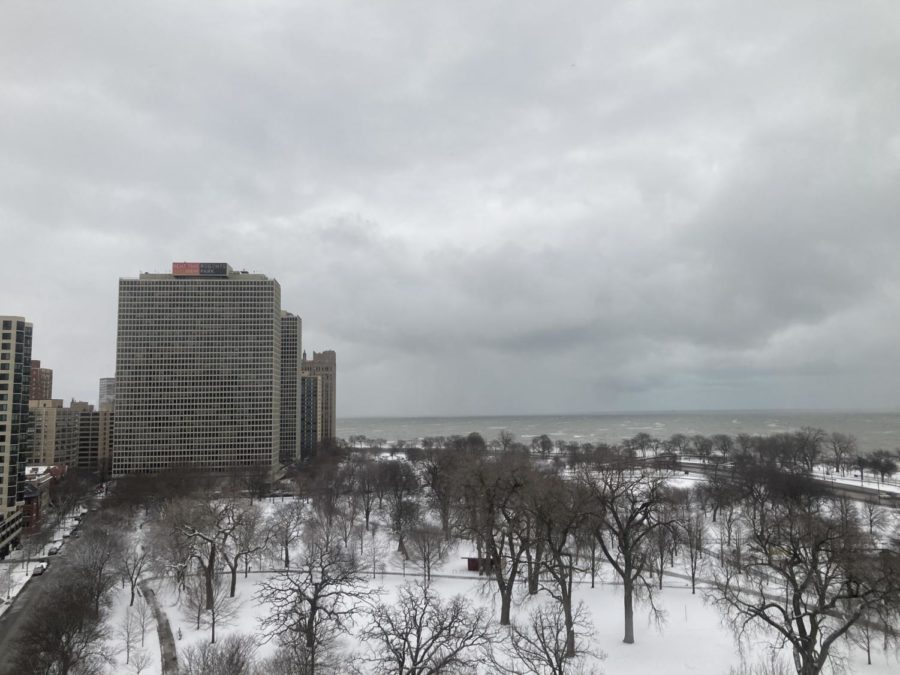This January, the Hyde Park & Kenwood Interfaith Council, an association of religious leaders and organizations in the local community, announced the formation of an Anti-Violence Task Force to address rising rates of violent crime in their congregations’ neighborhoods.
The formation of the task force was first announced in a letter in the Hyde Park Herald on Martin Luther King Jr. Day.
“We, as faith leaders, feel strongly about the need for a response from the faith community,” the task force wrote, responding to a number of recent violent incidents in Hyde Park and Kenwood, including a widely-publicized UCPD shooting. “[We need] a response that will seek to address root causes, and that will allow us to use our voices and resources to bring about the changes needed to literally ‘Stop the Violence.’”
The task force is led by Reverend Veronica Johnson, one of the pastors of the Hyde Park Union Church. “Many faith leaders in our community have been involved in other groups that have been addressing violence across the city,” Johnson said when asked about the origins of the task force. With violent crime on the rise in Hyde Park, Johnson felt as though the faith community had a responsibility to step up and offer their resources and perspectives—because, she said, “If not now, when?”
Brie Loskota, the newly-appointed executive director of the University’s Martin Marty Center for the Public Understanding of Religion, represents the University on the Anti-Violence Task Force. Loskota believes that communication between faith groups is critical for an even distribution of resources among leaders and congregations. “Religious leaders often don’t know what other religious leaders and clergy are doing,” she explained. “Everyone has to take on every component of every issue.”
In their public letter, the task force shared their plans to prevent violence through education, service, outreach, and advocacy.
“[We’re looking at] education from the perspective of understanding root causes of violence, as well as understanding specifically what is happening [in our community]…ignorance is going to lead to more chaos and confusion,” Johnson said.
“If you pay attention to what is being learned when you study those at risk of becoming violent offenders, you will find poverty,” Johnson said. “But you will also find that they have been marginalized and disenfranchised—everything that comes from being Black in America. [Rebuilding is] not easy and it’s not fast.”
The task force intends to establish a mental health and trauma response program that supplies social and emotional care to those impacted by violent incidents. The task force also hopes to provide physical spaces for students and community members to congregate in the wake of violence and find spiritual relief.
“Our groups are about spiritual care,” said Nancy Goede, the pastor at the Augustana Lutheran Church of Hyde Park and a member of the task force. She stressed the need for group engagement with anti-violence efforts. “It’s easy for people to become dispirited and hopeless, and it's hard to turn that around by yourself.”
Through outreach and advocacy, the program will connect local communities with the resources needed for grassroots violence prevention.
“Advocacy [ensures] that we don’t go in saying, ‘Well, we know what services you need and here they are,’ but more try to understand compassionately…what services people think they need, and how can we facilitate those services to come about,” said Saba Ayman-Nolley, the president of the Interfaith Council, who worked closely with Johnson to establish the new task force.
The task force hopes to engage the University in its anti-violence work. “[The University] has to stop being an island, which it has been for some decades,” said Ayman-Nolley, herself a University alum. “I think there are elements of the University that are listening, that are trying very hard, and my hope is that we will connect to those elements and work together with them.”
All members of the task force expressed hope that University students interested in faith-based activism will join with the Anti-Violence Task Force. “We’re looking for people who can serve, and help us think through and create programs,” said Johnson.
She also emphasized that the task force is “brand-spanking new,” and that not every logistical detail has been hammered out. “People can also decide, I have artistic talent, and I would like to work on some kind of artistic piece to help me think through race and violence and myself,” Goede said. “There are all kinds of possibilities for people to get involved.”
Students looking for a way to promote anti-violence through their faith will be welcome in the task force. In the words of Loskota, it’s “a beautiful fabric of people all working in concert towards a shared goal of a flourishing community,” one that is already working to set up community programming. Students interested in joining the task force can reach out to them at their email: hpkinterfaithcouncil@gmail.com.









